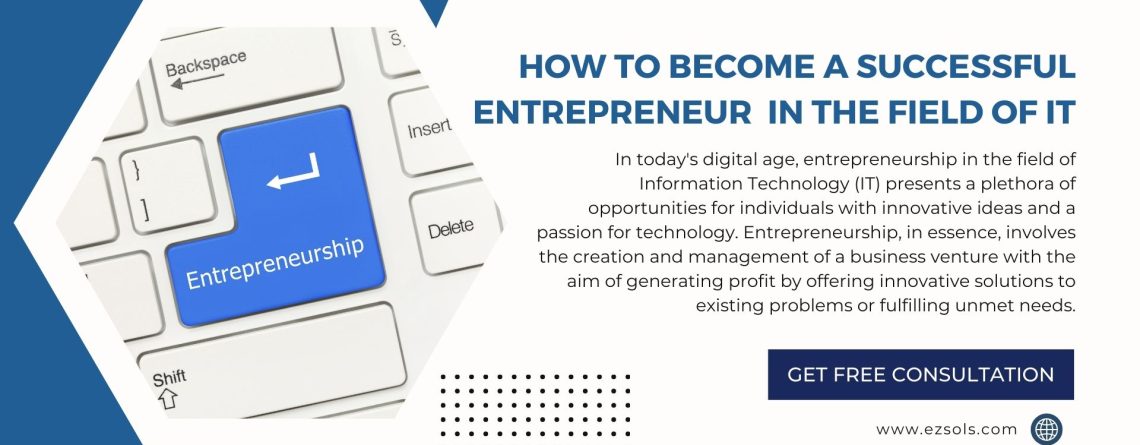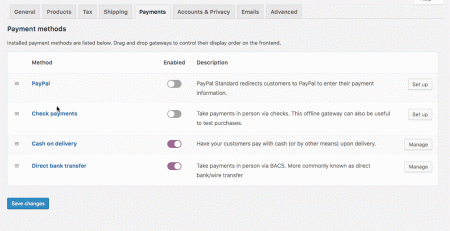How to Become a Successful Entrepreneur in the Field of IT
Introduction to Entrepreneurship in IT
In today’s digital age, entrepreneurship in the field of Information Technology (IT) presents a plethora of opportunities for individuals with innovative ideas and a passion for technology. Entrepreneurship, in essence, involves the creation and management of a business venture with the aim of generating profit by offering innovative solutions to existing problems or fulfilling unmet needs. Within the realm of IT, entrepreneurship encompasses various aspects such as software development, website designing, digital marketing, cloud computing services, and more.
Understanding the IT Industry
The IT industry is ever-evolving, driven by constant technological advancements and changing consumer demands. From artificial intelligence and machine learning to blockchain and Internet of Things (IoT), the landscape of IT is vast and diverse. Entrepreneurs in this field must stay abreast of the latest trends and technologies to remain competitive and relevant in the market.
Qualities of a Successful IT Entrepreneur
To thrive as an IT entrepreneur, certain qualities are paramount. Technical expertise forms the foundation, as entrepreneurs need a deep understanding of the technologies they are working with. Moreover, adaptability and innovation are essential traits, enabling entrepreneurs to pivot in response to market changes and introduce disruptive solutions. Additionally, effective leadership and management skills are crucial for guiding teams and driving business growth.
Steps to Become a Successful IT Entrepreneur
Becoming a successful IT entrepreneur requires a strategic approach and careful planning. Firstly, aspiring entrepreneurs should identify a niche within the IT industry where their skills and interests align. Next, building a strong network of professionals and mentors can provide valuable support and guidance. Developing a comprehensive business plan outlining goals, target market, and revenue streams is essential for laying a solid foundation. Acquiring relevant skills and certifications further enhances credibility and expertise. Establishing a robust online presence through a professional website and active participation in digital platforms is vital for visibility and brand building. Lastly, leveraging effective digital marketing strategies such as search engine optimization (SEO), social media marketing, and email campaigns can help reach a wider audience and drive customer engagement.
Challenges Faced by IT Entrepreneurs
Despite the promising prospects, IT entrepreneurship comes with its own set of challenges. Intense competition within the industry demands continuous innovation and differentiation to stand out. Rapid technological advancements require constant upskilling and adaptation to avoid obsolescence. Financial constraints pose a significant barrier, especially for startups with limited funding. Moreover, cybersecurity threats loom large, necessitating robust security measures to safeguard sensitive data and assets.
Tips for Overcoming Challenges
To overcome these challenges, IT entrepreneurs must adopt a proactive approach. Continuous learning and upskilling are imperative to stay ahead of the curve and remain relevant in a dynamic industry. Strategic partnerships with complementary businesses can provide access to resources and expertise, facilitating growth and expansion. Efficient resource management, including budget allocation and time management, is essential for maximizing productivity and minimizing wastage. Furthermore, prioritizing customer satisfaction by delivering high-quality products and excellent service can foster loyalty and advocacy, driving long-term success.
Case Studies of Successful IT Entrepreneurs
Examining the journeys of successful IT entrepreneurs can offer valuable insights and inspiration. Visionaries like Elon Musk, founder of SpaceX and Tesla, have revolutionized multiple industries through their innovative ventures. Similarly, Jeff Bezos’ transformation of Amazon from an online bookstore to a global e-commerce giant showcases the power of relentless innovation and customer-centricity. These case studies underscore the importance of vision, perseverance, and adaptability in the pursuit of entrepreneurial success.
Conclusion
In conclusion, entrepreneurship in the field of IT presents boundless opportunities for aspiring individuals with a penchant for technology and innovation. By cultivating essential qualities, following a strategic roadmap, and overcoming challenges with resilience and creativity, anyone can embark on a rewarding journey towards becoming a successful IT entrepreneur. With dedication, passion, and a willingness to embrace change, the sky’s the limit in the ever-expanding realm of IT entrepreneurship.
Unique FAQs
1. How much technical expertise is required to become a successful IT entrepreneur?
- While a strong foundation in technology is essential, continuous learning and adaptation are equally crucial. With dedication and perseverance, individuals can acquire the necessary skills to succeed in the IT industry.
2. What role does digital marketing play in the success of IT entrepreneurship?
- Digital marketing serves as a powerful tool for reaching target audiences, driving brand awareness, and generating leads. By leveraging various digital channels effectively, IT entrepreneurs can enhance their online presence and maximize customer engagement.
3. How can aspiring IT entrepreneurs stay updated with the latest industry trends and technologies?
- Engaging in professional development activities such as attending conferences, participating in online courses, and joining industry forums can help entrepreneurs stay abreast of the latest developments in the IT landscape.
4. What are some common mistakes to avoid when starting an IT venture?
- Overlooking market research, underestimating financial requirements, neglecting cybersecurity measures, and failing to prioritize customer needs are among the common pitfalls that aspiring IT entrepreneurs should avoid.
5. Is it necessary to have prior business experience to succeed as an IT entrepreneur?
- While prior business experience can be advantageous, it is not a prerequisite for success. With dedication, perseverance, and a willingness to learn, individuals from diverse backgrounds can embark on a rewarding journey in IT entrepreneurship.






Leave a Reply
You must be logged in to post a comment.